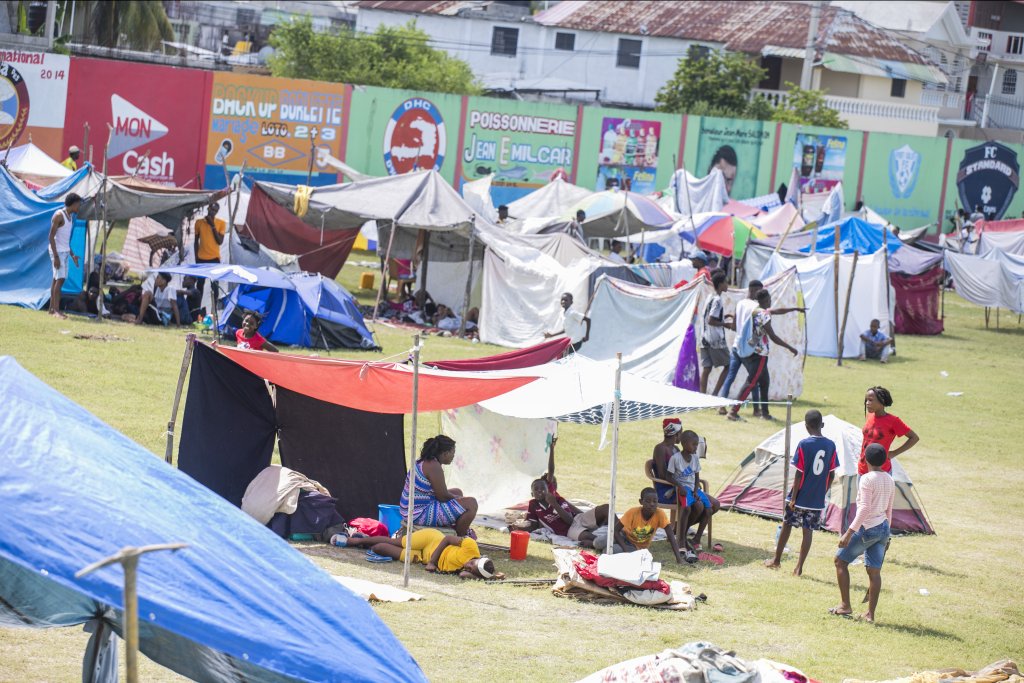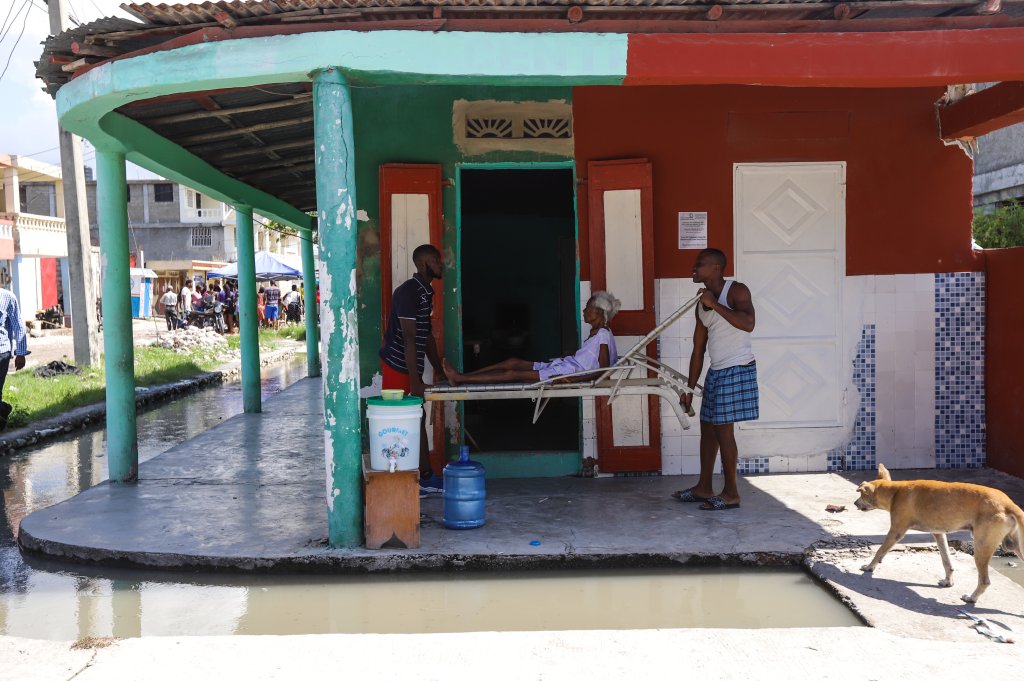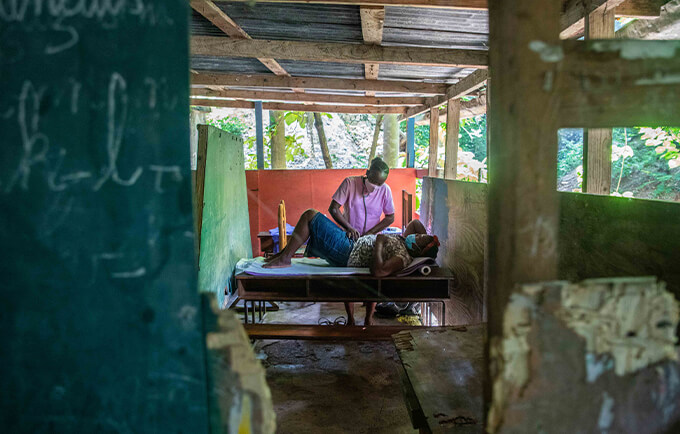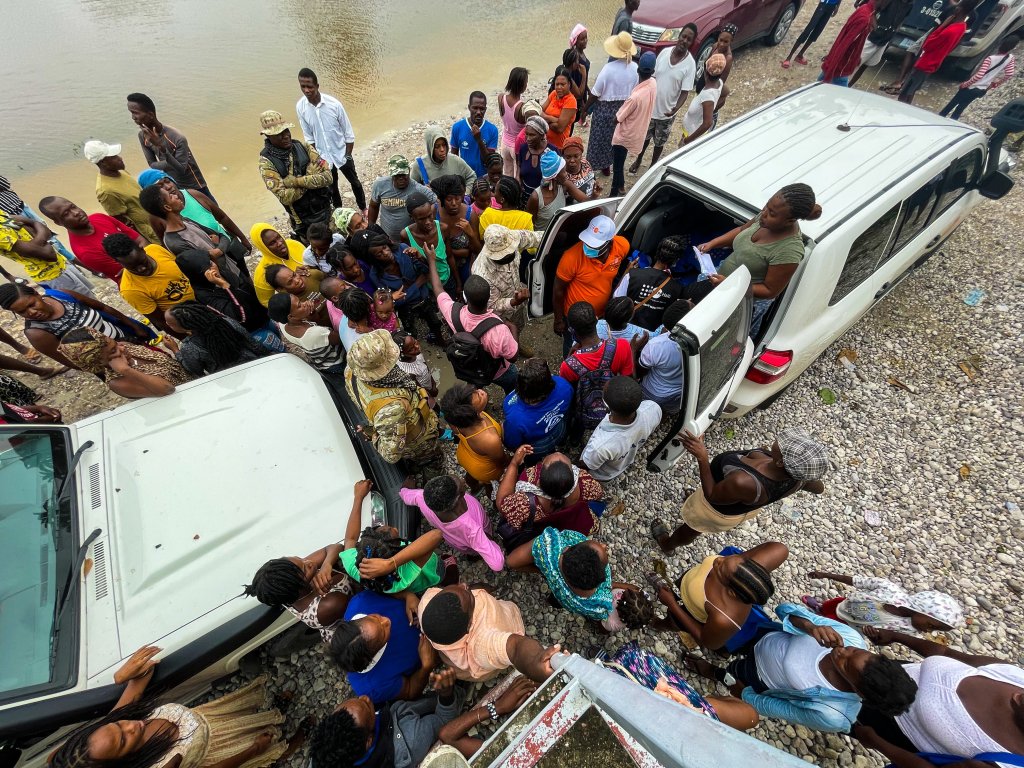Haiti’s Most Recent Earthquake Puts Women and Girls at Risk

On August 14, 2021, a massive 7.2 magnitude earthquake hit southwestern Haiti, killing nearly 2,000 and injuring thousands more. The coming days will likely bring more deaths, especially given the lack of functional health facilities, health care workers, and supplies. Over 83,000 homes have been destroyed or damaged, leaving many Haitian women and girls either homeless or displaced.
Looking back to 2010

The earthquake struck the same fault line as Haiti’s devastating 2010 earthquake. Death toll estimates range between 200,000 and 300,000 people. Further, the earthquake destroyed key government buildings, bridges, roads, homes, schools, and hospitals. Landslides, tsunamis, a cholera outbreak, and overcrowding also made it difficult for Haiti to recover after the quake. The legacy of the 2010 earthquake lives on today. In many ways, Haiti was still in the process of rebuilding when the latest disaster hit.
Navigating the Current Environment

The political situation in Haiti has been unstable for decades. But, the recent assassination of Haitian president Jovenel Moise in early July 2021 has complicated the situation further. Prime Minister and Acting President Ariel Henry is currently leading the country through the emergency response, but rampant gang violence has posed challenges. Gangs have limited aid delivery to the south–the epicenter of the disaster–through road blockages and continued violence. The UN is calling for a “humanitarian corridor” so supplies can be delivered where they’re needed most.
Women and Girls are Facing Challenges to their Basic Care

Women and girls are especially vulnerable right now. Thousands of women and girls are experiencing homelessness. They are at a heightened risk of gender-based violence, which increases in times of uncertainty and when women and girls experience displacement or homelessness. Further, without access to supplies like food, water, and period products, some women and girls will resort to transactional sex. This puts them at risk of violence, unintended pregnancy, and sexually transmitted infections, like HIV. These life-altering outcomes are even more likely if women and girls lose access to birth control, like condoms.
Finally, pregnant women and new moms require access to prenatal care, safe delivery care, and post-birth checkups. With the health care system weakened by the ongoing COVID-19 crisis and now this earthquake, deadly pregnancy and childbirth complications will likely rise. 22,000 Haitian women will give birth in the next three months and 3,700 of them are likely to require emergency care, like a Caesarean section.
You deliver lifesaving care in the face of crises.

We are on the ground delivering lifesaving sexual and reproductive health care to women and girls in Haiti. Last year alone, we reached over 50,000 women and girls with sexual and reproductive health care and another 30,000 people with gender-based violence services. Nearly 150,000 people, including health care workers, received personal protective equipment. However, our work is far from done. With your support, we can reach vulnerable women and girls in Haiti with the lifesaving care they need, no matter what.
-Dana Kirkegaard